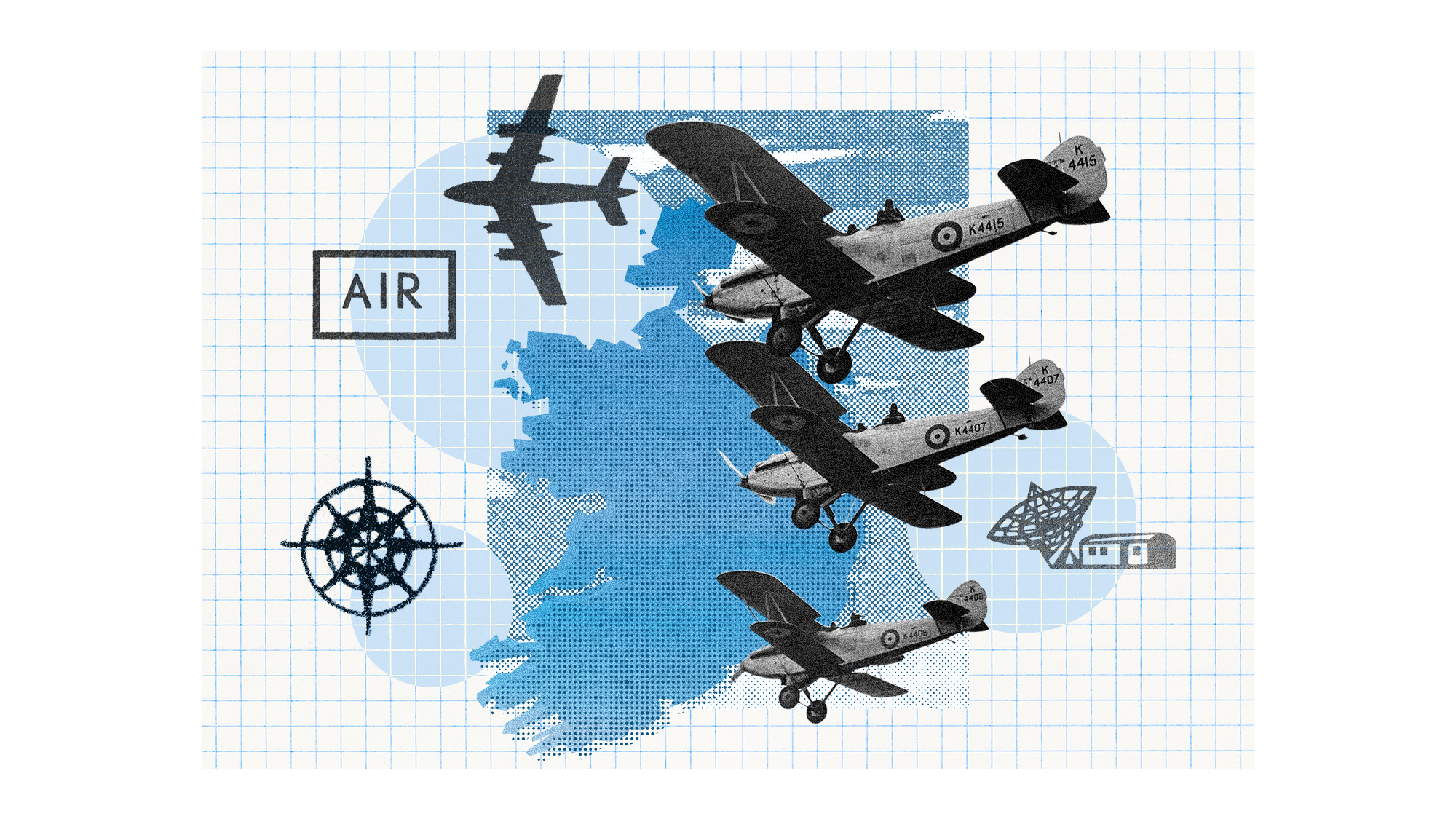Secret plan for UK to protect Irish skies
Relations between Dublin and London have historically been strained but covert co-operation has endured for decades

A free daily email with the biggest news stories of the day – and the best features from TheWeek.com
You are now subscribed
Your newsletter sign-up was successful
The Irish government is under pressure to come clean about a decades-old secret agreement with the UK for RAF aircraft to defend Irish airspace in an emergency.
Although "never officially confirmed", the Anglo-Irish deal is understood to allow UK jets to "intercept threats" in Irish airspace, said Sky News.
Sinn Féin, the main opposition party in Ireland, is now demanding more transparency on the precise nature of the arrangement to ensure it's not in breach of Ireland's neutrality. Independent senator Gerard Craughwell, a veteran of both the British and Irish armed forces, has also launched a High Court case that would force the government to put the details before the Irish parliament.
The Week
Escape your echo chamber. Get the facts behind the news, plus analysis from multiple perspectives.

Sign up for The Week's Free Newsletters
From our morning news briefing to a weekly Good News Newsletter, get the best of The Week delivered directly to your inbox.
From our morning news briefing to a weekly Good News Newsletter, get the best of The Week delivered directly to your inbox.
'Naval chokepoint'
It is official policy in Dublin "to refuse to publicly discuss" Ireland's air defence arrangements with the UK or the presence of RAF interceptors in Irish airspace, said The Irish Times. But interviews with political, diplomatic and military figures suggest that the agreement "goes back over 70 years to the early days of the Cold War".
The first agreement was drawn up in the early 1950s, when tensions between the USSR and the West were "near boiling point". Although neutral, Ireland was concerned it was "wholly unequipped" to detect or intercept any Soviet airborne threat. That threat was more than theoretical, because Ireland was next to the waters known as the Greenland-Iceland-United Kingdom gap, a "naval chokepoint" that would be "vital to control if hostilities broke out between the two superpowers".
So, in 1952, Irish officials signed an agreement that would allow the RAF to enter Irish airspace if it detected a Soviet threat, formalising a similar arrangement in place during the Second World War. However, Ireland's neutrality and its location on the west of Europe meant "the threat of Russian bombers rarely kept politicians or civil servants up at night".
During the Troubles, a second secret agreement was drawn up, allowing British helicopters to travel up to three miles into the Republic of Ireland for counter-terrorism surveillance and pursuits of suspects.
A free daily email with the biggest news stories of the day – and the best features from TheWeek.com
Then, after the September 11 attacks, Ireland "woke up" to the fact that commercial aircraft could potentially pose "just as much of a threat as a hostile power", so it was agreed that RAF jets could intercept and shoot down aircraft in Irish airspace.
That dimension of the agreement was crucial because the only aircraft Ireland had that were capable of air-to-air defence was the Pilatus PC-9, a propeller-driven trainer acquired by the Air Corps in 2004. It had much in common with aircraft used as far back as the Second World War.
'Effectively defenceless'
In addition to demands for increased transparency, there are also calls for Ireland to become more self-reliant in the air. A report from the Commission on the Defence Forces in 2022 found that Ireland was effectively defenceless on land, sea and in the air and it called for a new air squadron that would give Ireland its own "quick reaction alert" system, allowing it to respond to threats in its own airspace without relying on London.
But it is "not as easy as just buying aircraft", said The Irish Times. "Vast infrastructure" would be needed, including ground controllers, primary radar and a completely new training regime.
After decades of "chronic underinvestment" in its military, Ireland lacks a primary radar system capable of detecting military aircraft once they turn off their transponders, said Sky News.
In 2020, Russian Tupolev TU-95 "Bear" aircraft twice entered Irish-controlled air space before being escorted away by RAF jets, said the BBC. This "type of provocation" has "become more and more common in recent years", said The Irish Times.
"In the face of an increasingly belligerent Russia" the nation's air defence capabilities are "at their lowest point in decades".
Chas Newkey-Burden has been part of The Week Digital team for more than a decade and a journalist for 25 years, starting out on the irreverent football weekly 90 Minutes, before moving to lifestyle magazines Loaded and Attitude. He was a columnist for The Big Issue and landed a world exclusive with David Beckham that became the weekly magazine’s bestselling issue. He now writes regularly for The Guardian, The Telegraph, The Independent, Metro, FourFourTwo and the i new site. He is also the author of a number of non-fiction books.